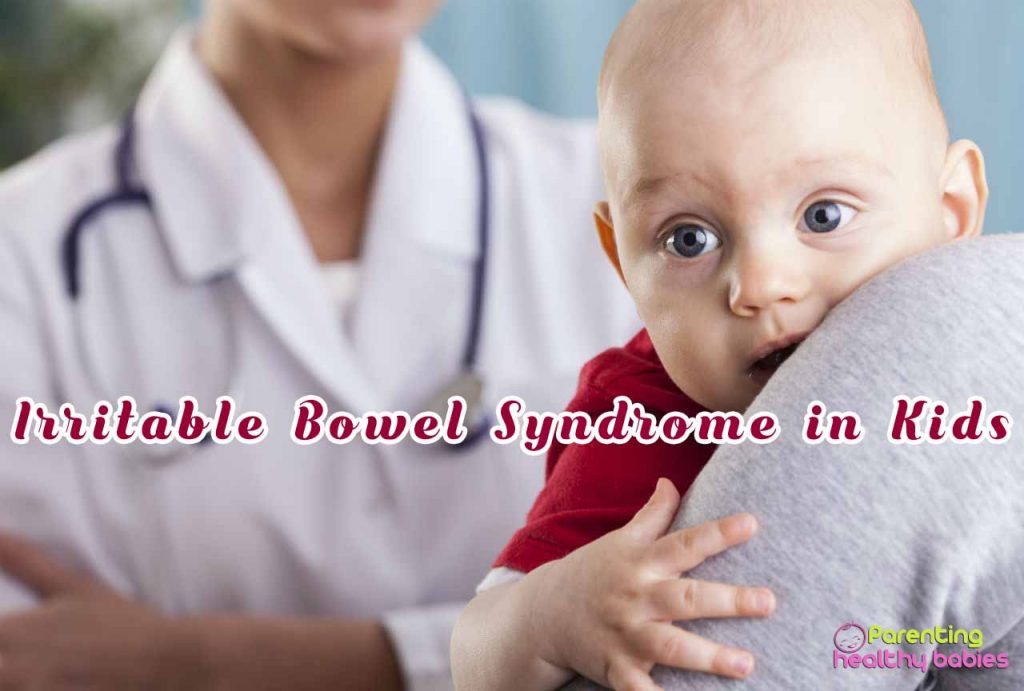Irritable Bowel syndrome (IBS) or spastic colon is a chronic gastrointestinal disorder. It is mixed disease ranging from discomfort due to constipation to frequent chronic and recurrent diarrhea. Irritable bowel syndrome (IBS) is a fairly common problem with the way the large intestine works. The large intestine (also known as the colon) absorbs water, minerals and nutrients from the partially digested food that enter it from the small intestine. Anything that is not absorbed is slowly moved on a pathway out of your body. These undigested and unabsorbed food particles are also known as stool.
Want to know the reason why an intestine gets “irritable”. To have a normal bowel movement, the muscles in the colon and the rest of the body have to work together. If this process is somehow disrupted, the contents of the colon can’t move along smoothly. It stops, starts, doesn’t move, or sometimes moves too fast. This can hurt and make a kid feel awful and uneasy. Doctors also believe that people with IBS may have more sensitive bowels, so what might cause a little discomfort in one person causes serious pain for someone with IBS.
Irritable Bowel Syndrome in Kids:7 Serious Symptoms and Causes
Characterized by kids having:
- Abdominal pain
- Bloating(distension)
- Cramping
- Altered bowel habits
- Gastritis
- Food intolerance
- Mucous discharge in stools
Kids may also experience nausea or vomiting along with reduced appetite. Weight loss can be insignificantly marked in such kids.
Causes of IBS in children may include:
Genetics:
Studies suggest that children with IBS may possess genetic defect, any mutation in a gene. This causes kids to have an interfering bowel function, by affecting a sodium channel in the gastrointestinal smooth muscle cells.
Brain gut signal dysfunction:
Sometimes due to various reasons, the signaling system between the gut muscles and brain may get compromised. The most recent evaluation about IBS patients states that the symptoms of the disorder result from the neurologic innervation of the gastrointestinal tract, associated with the altered interpretation of signals from the GI tract by the brain.
GI motor problem:
Also known as gastrointestinal hypo-motility. This is a condition wherein the digestive tract movements are reduced or minimized. The phrase intestinal motility disorders applies to abnormal intestinal contractions, such as spasms and intestinal paralysis. This phrase is used to describe a variety of disorders in which the gut has lost its ability to coordinate muscular activity because of endogenous or exogenous causes.
Hypersensitivity:
Having hypersensitivity means that your child is experiencing much more pain and irregular bowel movements than that would be expected, for the amount of stimulation.Your bowels are basically screaming pain signals to your brain.
Stress:
Mental pressure like stress can fasten the colon and bowel movement leading to increased urgency and frequency of passing stools.
Bacterial gastroenteritis:
Diarrhea is the body’s mechanism to get rid of the infections and waste generated in the body. Infections are common in children due to lack of hygiene.
Small intestinal bacterial growth:
It is the presence of excessive bacteria in the small intestine. Usually, bacteria do house themselves in the intestine as these help in digestion mechanism and are known to be commensals. Though their massive increase in number is indicative of the pathological condition. This happens due to compromised bowel and colon movement dysfunction.
Along with its legitimate treatment, it is also important to prevent fluid loss. Offer additional breast milk or an oral rehydration solution (ORS) to infants and young children. Water alone doesn’t have enough minerals and other nutrients to rehydrate young children. Be sure to talk to your doctor about the amount of fluids your child needs. Medications like laxatives and fiber-rich diet, probiotics, antibiotics and antispasmodics can help to relieve the symptoms in such children. While hypnotherapy can relax the children help relieve their stress which is one of the cause of IBS.
IBS has some stimulants which when avoided prevent the symptoms. Therefore keep your kids at bay from fatty, oily and protein-laden diets. It’s not just what they eats what he/ she doesn’t eat also may lead to IBS symptoms. Fruits, vegetables, and high-fiber foods like beans and popcorn and popsicles too can help keep a kid’s colon running distinctly. Your doctor might recommend a fiber supplement as well. Drinking water can help a cranky colon too. Also, keep cautions like:
- Avert overeating
- Definite times for meals
- Regular interval between two meals
- Daily exercise
A little care and caution can help your child grow and develop healthily.
Hope this article was of help for all our parents!! Please share your comments/queries/tips with us and help us create a world full of Happy and Healthy Babies!!
